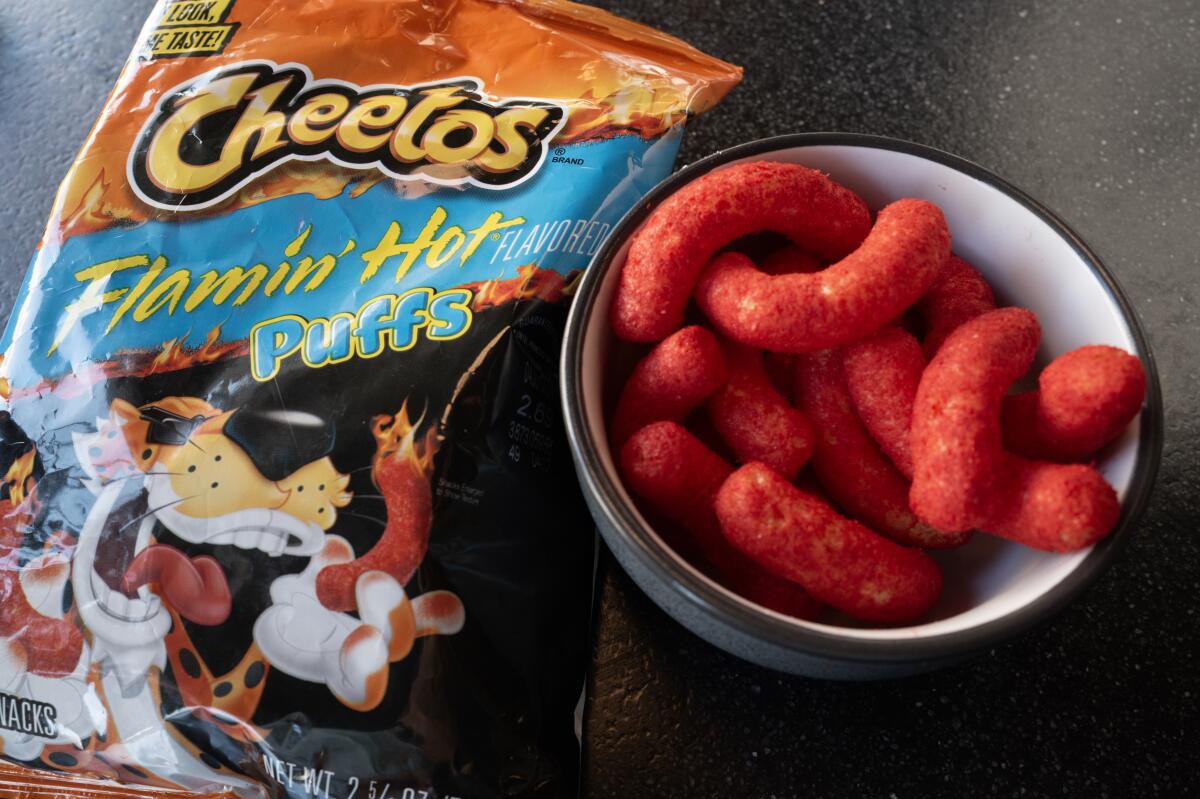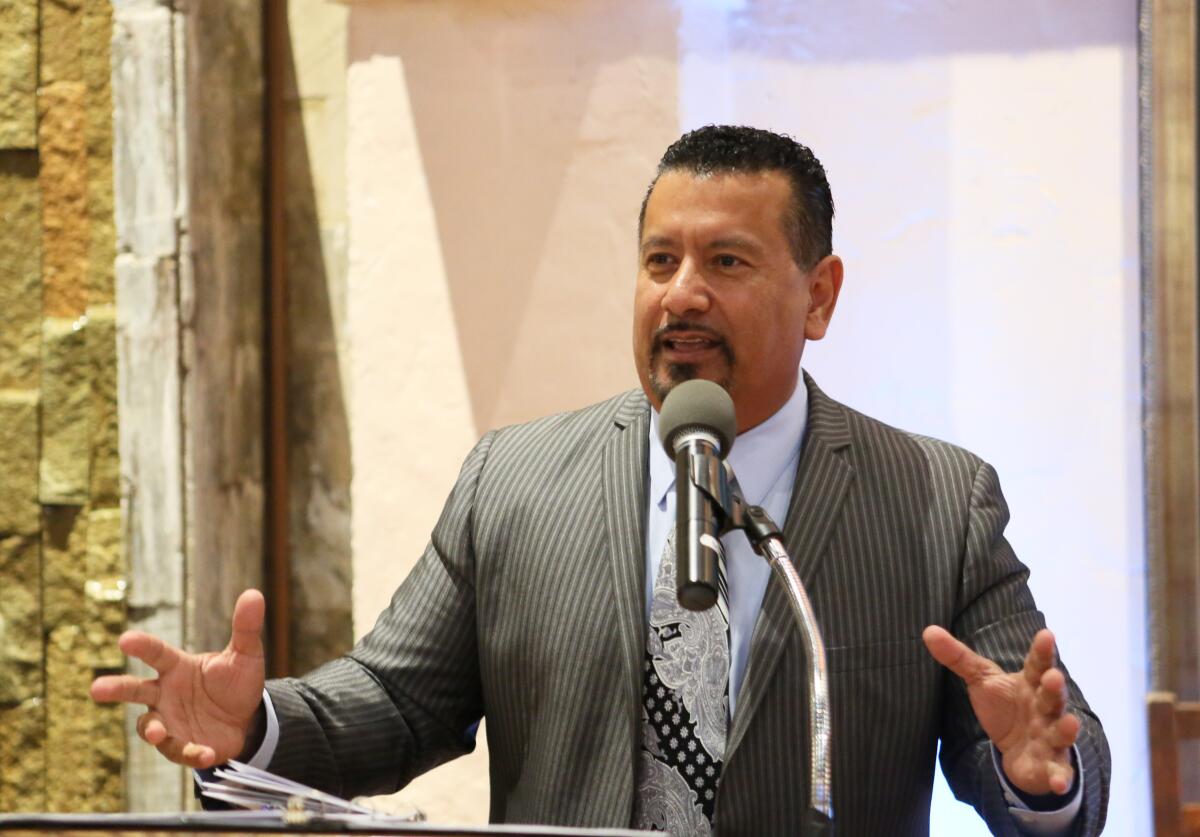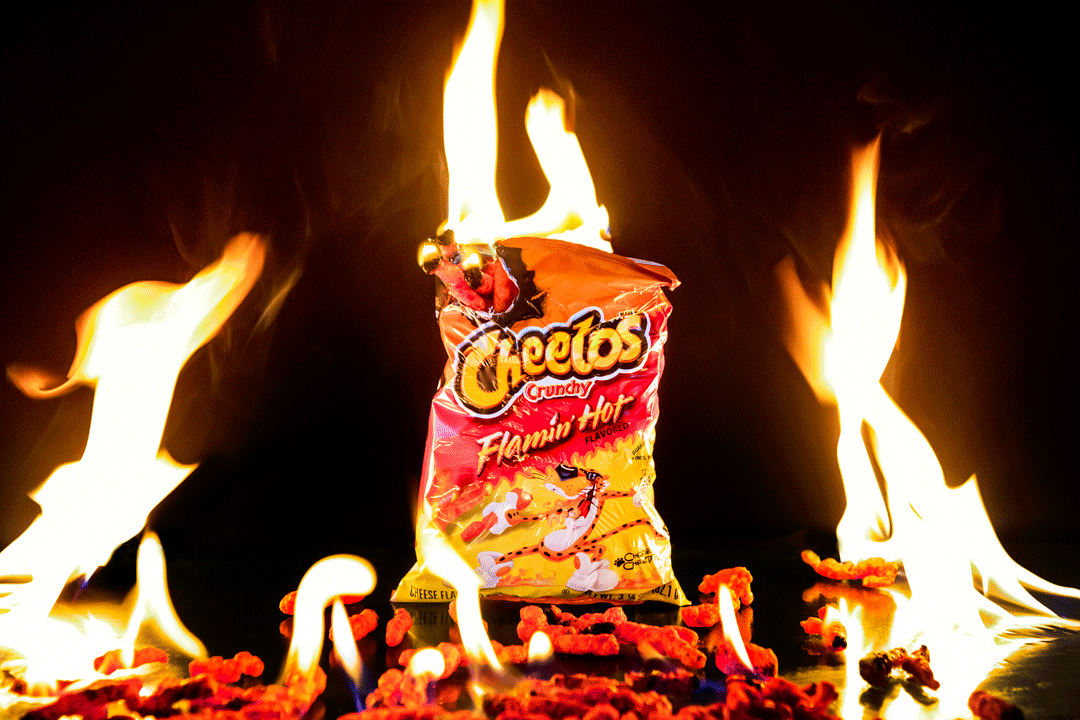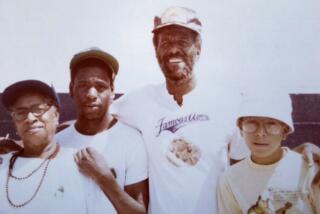He says he invented Flamin’ Hot Cheetos. He didn’t, said Frito-Lay. Now he’s suing

- Share via
The man who says he invented Flamin’ Hot Cheetos is suing his former employers for fraud, defamation and other violations, saying he was harmed when Frito-Lay and PepsiCo denied his role in creating the popular hot snack.
The 62-page lawsuit by Richard Montañez references a 2021 Los Angeles Times article that challenged his claim to be the godfather of the spicy junk food. The article cited chronological inconsistencies in Montañez’s story, archival proof of the release of test products, and comments by Frito-Lay executives.
“For decades, [Frito-Lay] recognized Mr. Montañez as the creator of Flamin’ Hot Cheetos,” the lawsuit says.
In the 2021 article, however, Frito-Lay said in a statement, “None of our records show that Richard was involved in any capacity in the Flamin’ Hot test market.” The company added, “That doesn’t mean we don’t celebrate Richard, but the facts do not support the urban legend.”
Richard Montañez has for years told a story of how he dreamed up Flamin’ Hot Cheetos while working as a Frito-Lay janitor. The archival record, former employees and Frito-Lay itself say otherwise.
The lawsuit lays out Montañez’s version of the story, in which he took a batch of unflavored Cheetos back to his home kitchen to experiment with different seasonings. According to the lawsuit, he took inspiration from elote, a traditional Mexican street food.
“Armed with nothing but a $3 tie, prototype and entrepreneurial spirit, he requested — and received — a meeting with none other than Frito-Lay/PepsiCo CEO himself, Roger Enrico,” the lawsuit says. “They loved it.”

Montañez met resistance working with the research and development team while creating a spicy seasoning for mass production, according to the lawsuit. “Dissatisfied that Mr. Montañez — a poor, uneducated Mexican plant worker and janitor — had successfully developed a new product, Frito-Lay’s R&D personnel completely shut out Mr. Montañez from the development process,” the lawsuit says.
Separately, a similar but unrelated Flamin’ Hot Cheetos test product went out around 1990 in Detroit, Chicago and other markets in the central United States, managed by a separate division within Frito-Lay, the lawsuit says. Montañez was unaware of those test products, according to the complaint.
“Only recently has it become clear that the discriminatory and hostile treatment that Mr. Montañez endured from Frito-Lay’s R&D group was intended to discourage or disadvantage the development of Mr. Montañez’s spicy Cheetos in order to heavily favor the Midwest division’s formulation, spearheaded by more traditional R&D employees,” the lawsuit alleges.
The frustration over Sam Dean’s article isn’t so much about Richard Montañez rather than a microcosm of two big issues that continue to plague Mexicans in the U.S.: historical erasure, and the continued yearning for heroes that white America can also embrace.
The lawsuit claims that Frito-Lay changed the way it talked about Montañez’s role in creating Flamin’ Hot Cheetos, “which can only be explained by some combination of a regime change, spite, and deep-seated racism.” The shift caused potential documentaries about Montañez’s life to be abandoned, the lawsuit says.
His version of the story was told in the 2023 film “Flamin’ Hot”, directed by Eva Longoria, and in two memoirs.
The Times article, which included 20 interviews of former Frito-Lay product development employees, said no one could recall Montañez’s story of a janitor pitching to the chief executive a new spicy snack that would cater to the Latino community.
Montañez, who worked his way up the ranks to become a vice president of multicultural marketing and sales at PepsiCo, claims in the lawsuit that the company pushed him to make company-approved speeches telling his story to large audiences across the country while he worked there. After he retired in 2019, he continued on to a second career as a motivational speaker and consultant.
Prior to publication of Frito-Lay’s remarks in The Times, the lawsuit says, Montañez booked 35 engagements per year at $10,000 to $50,000 per speech. “Since the article’s publication, and Defendants’ continued and relentless campaign to spread misinformation about him, Mr. Montañez has lost numerous partnerships, and seen a significant decrease in bookings, having booked just four speaking engagements this year,” the lawsuit alleges.
‘We are proud to stand with our author,’ said the head of Portfolio Books, promising that the memoir ‘Flamin’ Hot’ will still be released June 15.
A Frito-Lay spokesperson said the company would not comment on pending litigation.
Shortly after the initial publication of The Times’ article in 2021, Montañez posted a video to his Instagram account, addressed to “all you young leaders.”
“I don’t care what room you’re in, there’s always somebody in the room that’s going to try to steal your destiny. They may even say you never existed,” Montañez says to the camera. “I want you to do this: Write down your history, because if you don’t, somebody else will. Remember that. And also remember this, the best way to destroy a positive message is to destroy the messenger. Never allow that to happen to you. I’m certainly not going to allow it to happen to me.”
More to Read
Sign up for Essential California
The most important California stories and recommendations in your inbox every morning.
You may occasionally receive promotional content from the Los Angeles Times.













